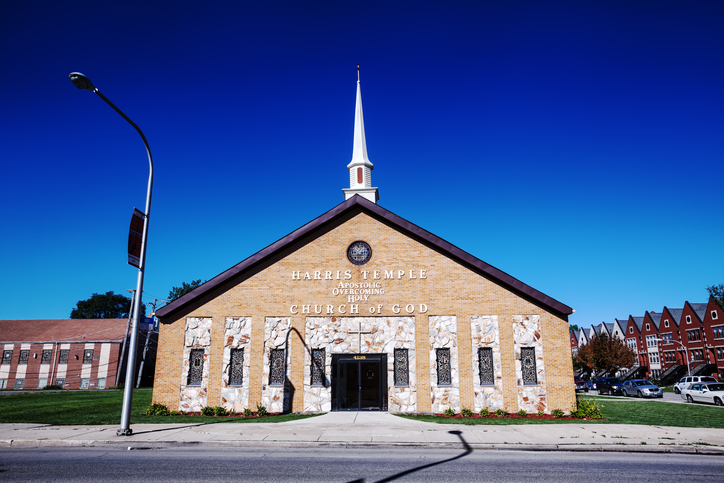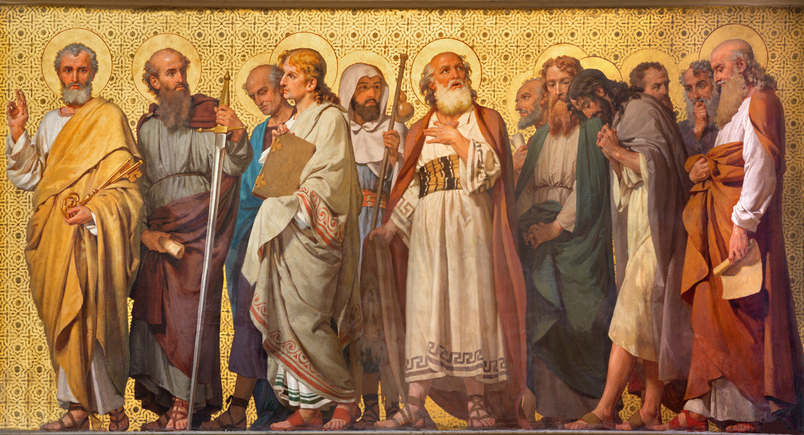
An Apostolic church is one that operates on the leadership of an apostle. Its members believe that a person was selected by God to expand God’s kingdom through a particular geographic area or people – just like when Peter was entrusted with spreading the Good News of Jesus to the Jews, and Paul was entrusted to spread it to the gentiles as described in Galatians 7:2.
Those who attend Apostolic churches are called Apostolic Pentecostals, and within those churches, the focus is placed squarely on the gospel in the belief that Christ died to secure our salvation and rose from death on the third day.
The Apostolic belief system contains a few key differences from other Christian denominations – the first being that the Trinity is not a distinct set of three beings. Rather, Jesus Christ is the father. When he was born to Mary, this was God manifested in the flesh. What follows is that Christ is the Holy Spirit, in that he lives within us when we received the gift of his birth.
Explore a Christian Ministry Degree – Request More Info Today!
What Do Apostolic Churches Believe?
What does that mean in practice? For one thing, Apostolic Pentecostals baptize in the name of Jesus Christ, not in the name of “the Father, the Son, and the Holy Ghost.” When the Holy Ghost is present in an individual, that individual’s oration of different tongues is evidence of the Spirit’s presence.
Another major doctrine of an Apostolic church is to live a life that will lead one to Heaven. That means members should follow the teachings of the Bible to a T. It’s not about adjusting one’s interpretation of the Bible to fit one’s life, but to adjust one’s life to the Scripture. Here’s what that looks like, as told by the Apostolic Christian Church:
- To resist the temptations of a sinful life.
- Live in contentment, simplicity, and modesty.
- Resist the evanescent messaging of the media, instead turning to “the timeless truths of Scripture.”
- Opening up one’s home and hearts to “both new and familiar faces.”
- Fostering relationships across multiple generations, ensuring the wisdom of the elders is passed down to the young.
This is just the tip of the iceberg. Apostolic Pentecostals refrain from smoking or drinking, and many women in the church choose to wear long dresses, and do not wear make-up.
It is the belief of the Apostolic Church that the apostles are at the top of the Earthly hierarchy, leading a mission from God to spread his Word.
The Order and Officers of the Church
The Apostolic Church believes in the five gifts God gave the church. They are fellowship, worship, discipleship, ministry, and missions. These gifts manifest themselves in the five officers of the church:
- Apostles
- Prophets
- Evangelists
- Pastors
- Teachers
In the Apostolic faith, the apostles possess vision. They understand the grand desire of God. They’re the ones who have orders from God to complete a particular mission, whether that’s to start churches in a particular community, or lead a population of nonbelievers to salvation.
The prophets offer messages from God. They deliver guidance in a manner that empowers individuals to grow spiritually. A prophet may experience spiritual phenomena such as angelic visitations, visions, dreams, and hear voices professing the word of God.
Evangelists are those who reach out directly to nonbelievers. They open their hearts to those in need of salvation, leading individuals to faith in Jesus. Evangelists have a knack for identifying people who are receptive to God’s love.
Then come the pastors, who shepherd believers through the spiritual journey. They help followers better understand the Scripture, advising them on how to resist temptation and reach their full potential.
Finally, the teachers study the Bible. They cultivate knowledge of Scripture among the communities they serve. Exegesis is a key skillset among the teachers – they know how to make the Bible digestible and relevant to anyone.
 History of Apostolic Churches
History of Apostolic Churches
So, how did this all come about? Well, it depends on which Apostolic Church you’re referencing. Some origins go back to the early 19th Century, while others didn’t come to fruition until the early 1900s.
The Apolistic Church in Wales
Let’s travel back in time to November, 1909, across the pond in Bournemouth, England. A man named William Oliver Hutchinson started a Pentecostal Church in the town. It expanded into a network of Pentecostal assemblies called the Apostolic Faith Church.
Later on, a Welshman named Daniel Powell Williams joined the congregation. Over time, Williams and his countrymen began to question the doctrines of Hutchinson’s Pentecostal faith. One such discrepancy was Williams’ belief that baptism should occur through immersion.
Shortly after that, Williams started the Apostolic Church in Wales. Today, the Apostolic Church International sees this as the birth of the Apostolic faith: Williams was ordained an apostle, and spearheaded the movement throughout Wales.
The Apolistic Christian Church in America
For this story, we need to go back to 1847 in Lewis County, New York. Here, the movement began with the work of Samuel Froehlich, a Swiss seminary student. He stressed the importance of adhering to a literal interpretation of the Bible, renouncing his ordination within the Protestant faith.
His teachings spread, and many Apostolics from Switzerland and Germany fled to America seeking religious freedom.
Ironically, the birth of the Apostolic movement in America began with people leaving an established faith. Benedict Weyeneth, an ordained elder under Froehlich, travelled to New York to help Amish Mennonites work through spiritual issues. After consulting with Weyeneth, many Amish left their faith to follow Froehlich’s doctrines. Afterward, the first Apostolic churches in Croghan and Naumburg, New York took root.
What to Expect When Attending an Apostolic Church
So, you walk into an Apostolic church. What’s the worship services like? The Apostolic Christian Church provides an overview of what you can expect…
Services last about an hour and commence with singing hymns. It’s a traditional take on the practice – you won’t find any instruments on either side of the pulpit. Every hymn is sung in a four-part a cappella style. The conclusion of the hymns leads to a moment of silent prayer.
Then follows the introduction, where the minister opens up a topic of discussion for today. This segues into a reading of the Old Testament, followed by another hymn and prayer. Then, the minister delivers a reading of the New Testament.
A sermon begins after the minister reads the New Testament. It’s an interpretation of the chapters and verses covered earlier in the service. What lessons should worshippers glean from the Scripture? How can they use those lessons to conduct themselves in a holy manner?
After the main sermon, a second minister delivers their closing thoughts. Then, the service is capped off with a hymn and prayer, announcements from the international Apostolic community, and general announcements.
The Apostolic Church has some unique perspectives on Christ. If you’re curious, search for one in your area and attend a service. You’ll gain fresh insight into God’s Word.




 History of Apostolic Churches
History of Apostolic Churches




